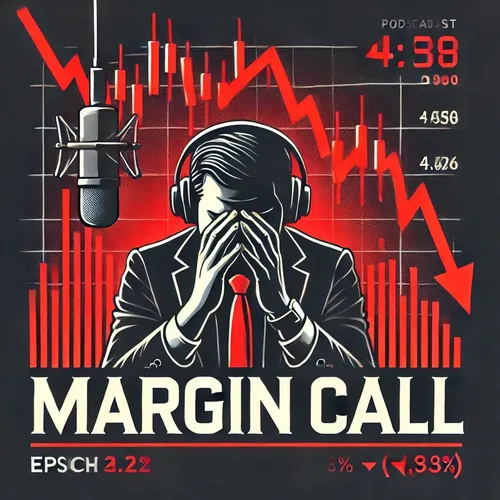Margin Calls and Short Positions: The High-Stakes Bet Against the Market
- Author
- Quiet. Please
- Published
- Mon 01 Sep 2025
- Episode Link
- https://www.spreaker.com/episode/margin-calls-and-short-positions-the-high-stakes-bet-against-the-market--67581721
Margin calls and short positions play a pivotal role in how financial markets function, especially during volatile periods. When traders take a short position, they are betting that the price of an asset will decline, allowing them to sell it high and, later, buy it back at a lower price to pocket the difference. However, this strategy comes with unique risks, and when the market moves against those shorts, the consequences can be swift and severe.
To understand the mechanics, it’s important to know about margin. Most short positions are executed with borrowed funds—traders must put up collateral, known as margin, to cover potential losses on the trade. According to E*TRADE from Morgan Stanley, if prices start to rise instead of fall, those positions rapidly turn unprofitable, eroding the margin set aside to secure the trade. When that margin drops below a predetermined threshold, the broker issues a margin call, demanding the trader deposit more funds or liquidate assets to restore account balance.
This scenario can spiral for traders on the wrong side of dramatic market moves. As STL.News explains, the amount of leverage in futures and short positions amplifies the gains—but also magnifies the losses. A seemingly small percentage move against a trader can wipe out the margin in the account, triggering immediate action. If a trader cannot meet the margin call, the broker is authorized to forcibly close the position, often at a substantial loss.
When many short positions are in trouble simultaneously, such as during unexpected price rallies or a “short squeeze,” the effect can become systemic. A short squeeze occurs when rising prices force traders to close shorts by buying back shares, further driving the price up. Notable historic examples, including the GameStop episode, saw retail traders band together to cause massive losses for institutionally held short positions. Bloomberg and Morgan Stanley have both commented on how these moments can expose broader market vulnerabilities.
Risk management becomes more than just a personal issue in these events—it also impacts brokerage houses and can cascade across the market. The Cboe Exchange recently emphasized the importance of increasing margin requirements and haircuts for large, concentrated positions in an effort to prevent domino effects from margin calls gone awry.
The over-the-counter or OTC market adds another layer of complexity and risk, as outlined by Fyers. In OTC trades, lack of transparency and looser regulatory structures can mean that price movements are less predictable and margin management is more precarious. This makes short positions—and the resulting margin calls—in the OTC world potentially even more dangerous than those on formal exchanges.
Professional traders often hedge short positions to mitigate risk, according to BTCC. Hedging involves taking offsetting bets or positions to protect capital when markets move unexpectedly. Despite these strategies, no hedge is perfect, and when momentum builds against short-sellers, even sophisticated risk management can falter.
In summary, margin calls serve as a critical safety valve in trading leveraged positions, especially short ones. When markets move sharply upward, short sellers must scramble to cover losses, and those unable to supply additional funds may face forced liquidation at unfavorable prices. The cascading effect of multiple short positions collapsing under margin calls can drive extraordinary volatility and major losses, underscoring the high-stakes nature of betting against the market.
Thank you for tuning in, and don’t forget to subscribe. This has been a quiet please production, for more check out quiet please dot ai.
For more http://www.quietplease.ai
Get the best deals
